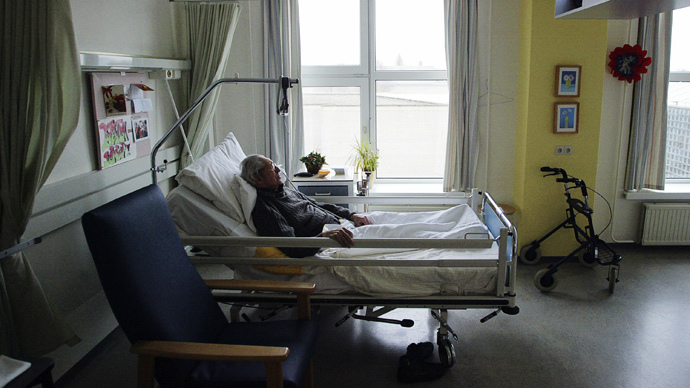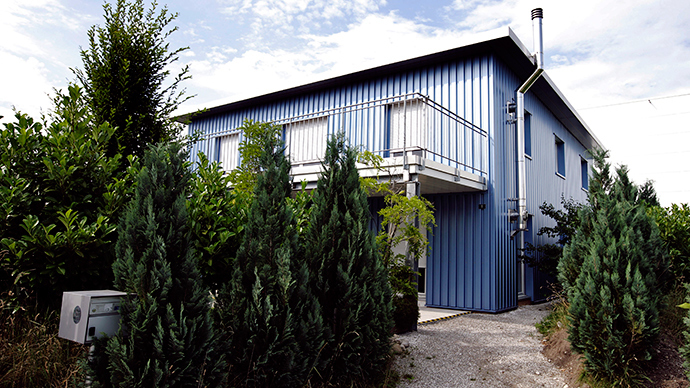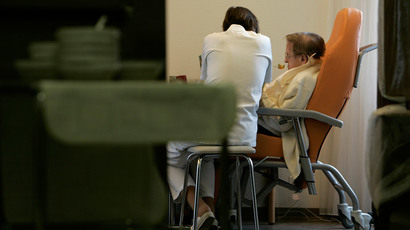‘Suicide tourism’ in Switzerland doubles in three years

The number of seriously ill foreigners using Swiss medical facilities for voluntary euthanasia doubled between 2009 and 2012, according to a new study. The rising numbers have sparked a discussion of new euthanasia laws in the “tourists’” own countries.
In total, 611 foreign citizens died between 2008 and 2012, the period covered by the paper just published in the Journal of Medical Ethics. All but four were assisted with their suicide at the Dignitas Clinic, which charges about $10,000 for the procedure, and the vast majority used sodium pentobarbital – the same drug used during executions in the US.
Nearly half the patients were from Germany, a fifth from the UK and just under ten percent from France. All three countries do not officially endorse assisted suicide on their own territory, but the increasing profile of Dignitas has made each a hotbed of legal and ethical debate on the issue.
“The first is the liberalization of public opinion that comes naturally, if irrationally with familiarity. And the second is the slowly growing public acknowledgement that there is something intellectually, if not morally, uncomfortable, about getting another country to do your dirty work,” wrote Charles Foster a law academic at Oxford University, in the commentary accompanying the article.
A survey conducted throughout 12 major EU states last year, showed that in every single one, the majority population has come to believe that voluntary euthanasia for those who are seriously ill should be allowed.

Largely as a result of the public debate in the past decade, the Assisted Dying Bill passed through the first hurdle in the House of Lords in the UK last month, though it will not come into force until next year at the earliest, after having gone through several more filters.
Bills to discourage assisted suicide were also shelved in Germany two years ago, while in France debate continues on the introduction of more pro-euthanasia legislation that was promised by Francois Hollande prior to his election as president.
The study shows that nearly half of those who died at Dignitas were suffering from serious neurological conditions – such as paralysis, Parkinson’s or ALS – and nearly two in five were diagnosed with cancer. A third of the patients simultaneously suffered from two or more grave afflictions.
The average age of the patients was 69, and three out of every five were women. Even if there is little liberalization of suicide legislation elsewhere in Europe, Switzerland is still likely to be a haven for those who want to die without placing their close ones and doctors at risk of criminal prosecution. Attempts to tighten up the legislation have been roundly rejected by legislative assemblies in the country.
The Netherlands, Belgium and Luxemburg have the most pro-euthanasia legal system in the world. While in Switzerland and elsewhere, the patient must voluntarily administer the deadly agent at the final stage, in the Benelux this can be done by a physician, providing certain criteria of consent are met. About 3 percent of all deaths in the Netherlands are the result of euthanasia.













